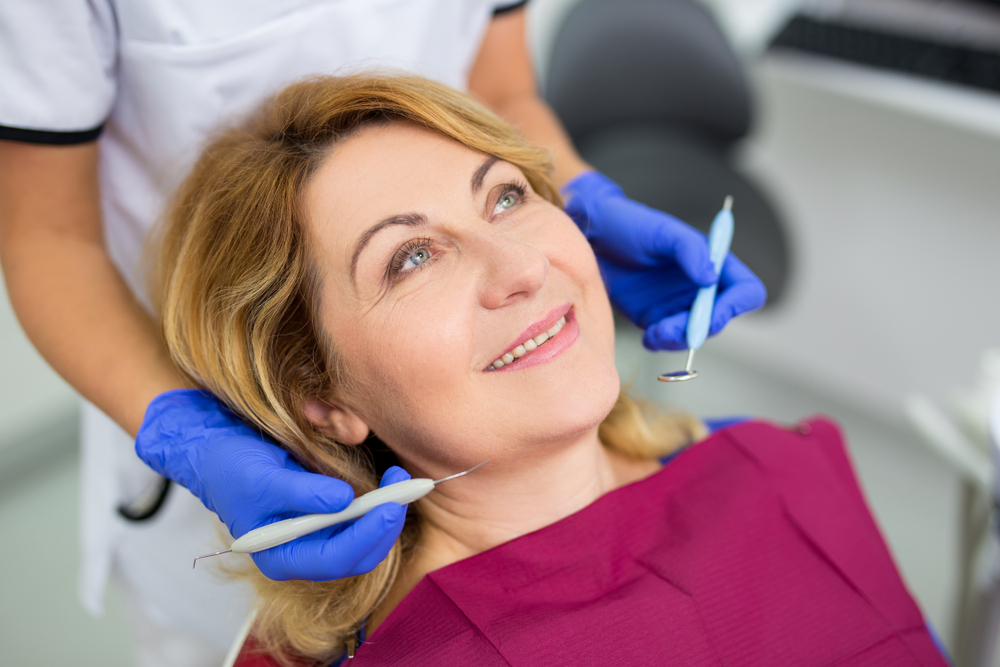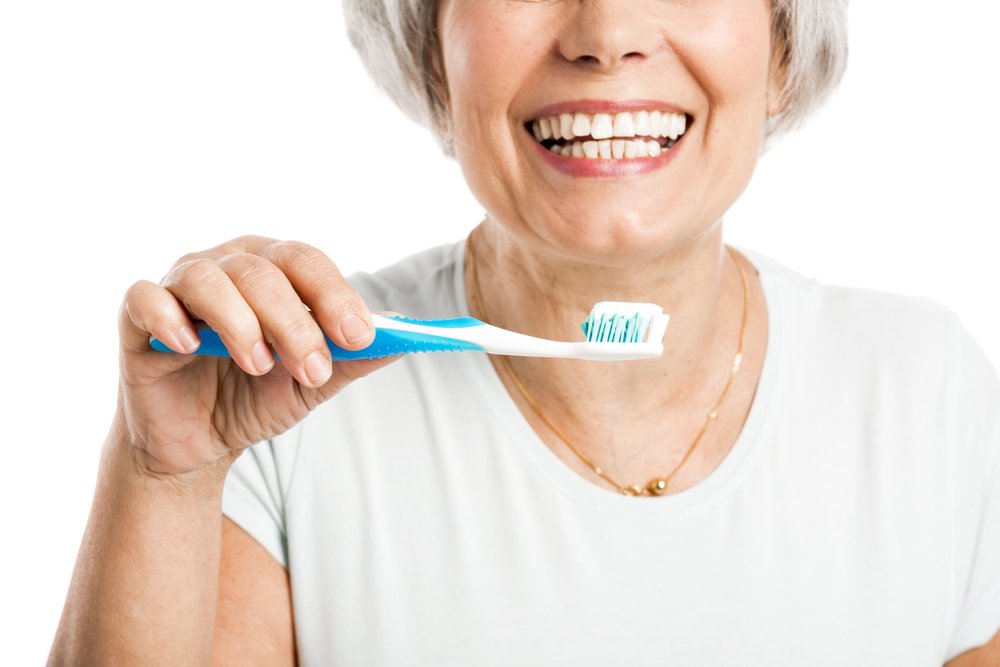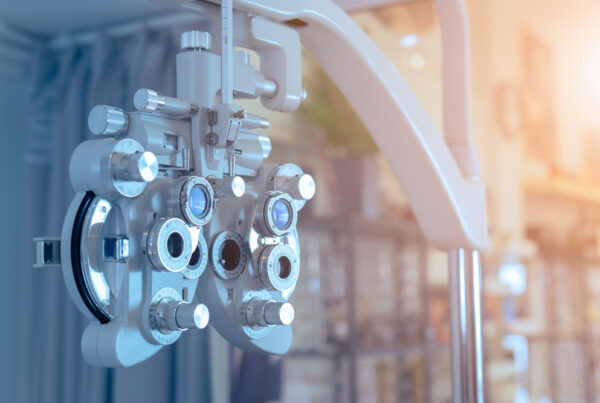As part of Dental Health Week (August 7-13), the Australian Dental Association is reminding Australian women of the oral hygiene basics: brush twice a day, floss daily, eat a diet low in sugar and see your dentist regularly.

While many oral health issues are common to both genders, there are some at various stages of our lives which affect girls and women specifically. It could be related to certain medications, hormones or possibly even due to unexplained reasons. Dentists are trained to be aware of signs of disease and issues that can impact female patients.
Around 60 per cent of women with symptoms of menopause and post-menopause also experience these oral conditions:
Dry Mouth: signs include a sensation of oral dryness and burning, difficulty articulating words and swallowing/eating dry foods like crackers, crisps and bread. It’s normally related to medications such as antidepressants, antihistamines and blood pressure drugs. The risk of dry mouth also increases as the number of medications taken increases. If the woman stops or reduces the amount of that medication, the condition can go away – though this should only be done with close medical/dental supervision.
Dry mouth can increase risk of oral infections such as thrush as well as leading to an increased risk of tooth decay, as saliva helps to protect the teeth. It contains enzymes and buffers which help to neutralise acids produced by bacteria in dental plaque.
It can be alleviated by frequent sips of water, use of over-the-counter dry mouth products and oral lubricant sprays and gels, as well as chewing sugar-free gum to stimulate saliva and avoiding or limiting caffeine intake – though there’s no finite amount – the less the better. There are also specialised dry mouth toothpastes and mouth rinses which may help.
Oral Discomfort and Burning: this mainly affects women in their forties and fifties. It’s characterised by oral discomfort and a burning sensation affecting the inside of the cheeks, tongue, gums, lips, palate and sometimes the throat. It’s diagnosed in the absence of any observable alteration in the appearance of the affected areas which could indicate other issues.
No-one knows exactly what causes burning mouth syndrome though there seems to be a correlation between symptom severity and hormonal changes during menopause, or possibly triggered by anxiety/depression.
However dentists recommend that haematinic (iron, vitamin B12, folate) deficiencies as a cause should be excluded via blood tests typically ordered by your GP or oral medicine specialist. Sometimes the condition resolves itself spontaneously without medical intervention and in other cases it can become chronic, and ongoing medication is needed.
Gum Disease: hormonal changes increase the likelihood of developing gum disease, known as gingivitis in its milder form or in its more severe form, called periodontitis. Symptoms include bleeding of the gums when brushing, change in the appearance of the gums (redness, puffiness or gums shrinking away from the teeth in places), bad breath or loosening of teeth.
It’s typically managed by meticulous oral hygiene including flossing daily, brushing the teeth for two minutes twice a day and regular dental visits. Sufferers also need to be vigilant about sugar intake as this always compromises oral hygiene.
There are conflicting results regarding the effect HRT has on gum disease – in some women there are improvements and in others, no change.
The good news is that gum disease will definitely improve with regular careful oral hygiene at home and reviews with your dentist or oral medicine specialist. It can be controlled and the damage halted – though existing damage cannot be reversed.
Osteoporosis and its medication-related complications: women in this age group commonly develop osteoporosis or brittle or porous bones and are prescribed specific medication to manage this. Some of these medications have been implicated in Medication-Related Osteonecrosis of the Jaws or MRONJ, with pain in affected areas, gum swelling and pus. In severe cases patients are at risk of jawbone fracture.
MRONJ is a complication that may occur following an oral surgical procedure such as tooth extraction or implant placement, although it can occur after trauma to the oral tissues, or even spontaneously. Usually it presents with an area of exposed, non-healing jawbone, which may become infected.
The key is prevention – comprehensive dental assessment before starting medication for osteoporosis, meticulous oral hygiene and regular dental visits.









